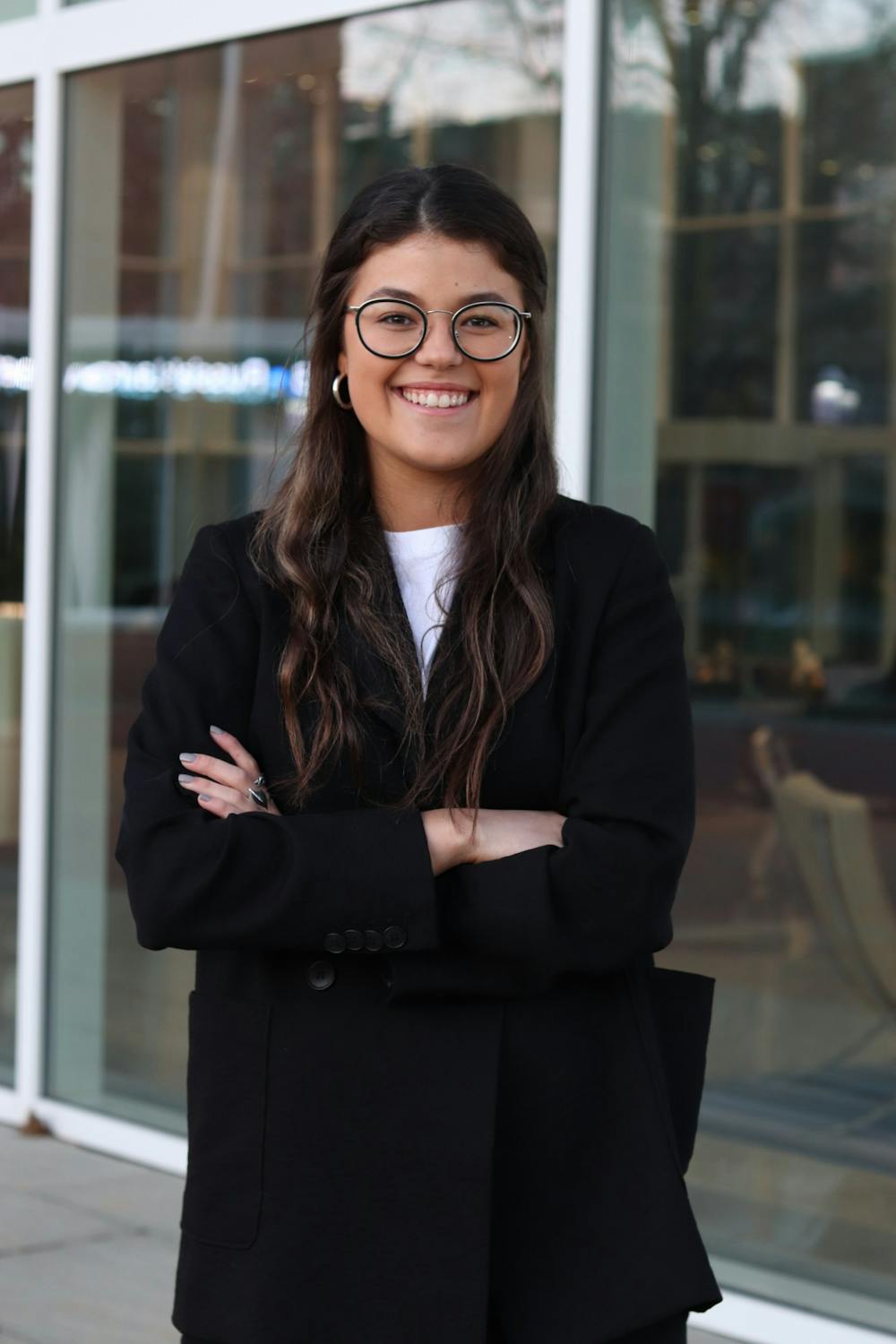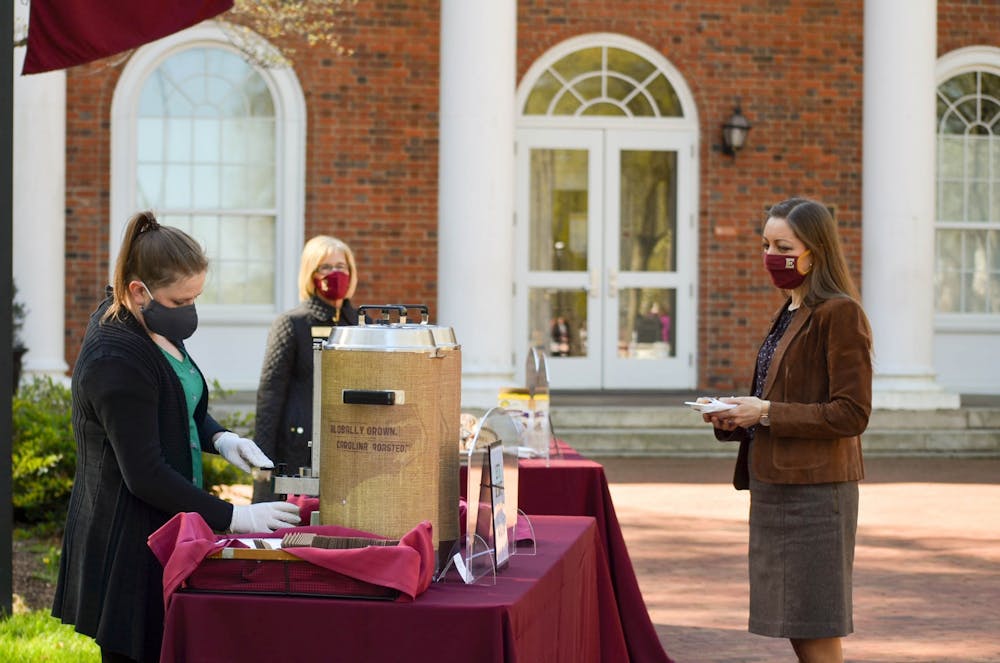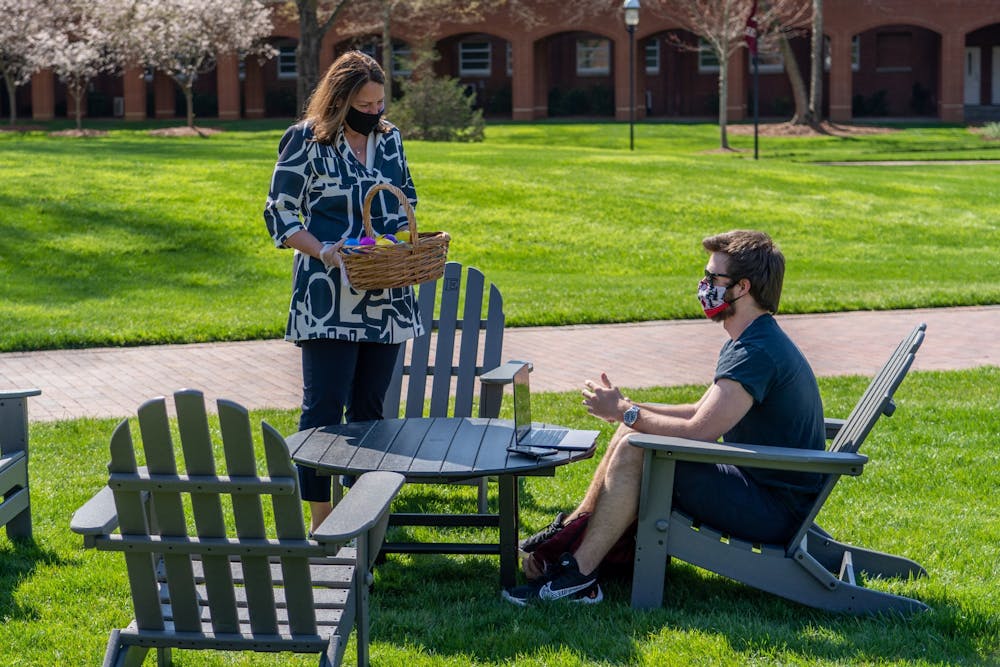A hallmark of our university has always been to create global citizens. It is why I, and so many of us, chose to attend Elon University in the first place.
Prior to studying abroad, which in 2019, 85.3% of us did, we are prepared with a multitude of informational sessions to equip us with the tools necessary to live in and experience the culture of another country. As a previous expatriate I am no stranger to culture shock, however, it doesn’t take four years or a Winter Term to experience the effects of culture shock.
It is here, on our campus, where students from New England to the West Coast experience leaving home for the first time. There is no one story for how students have arrived at Elon, but for many, Elon is the culture shock of leaving the place they were raised for the first time, and there is adjustment in that too.

I have wondered why we have been prepared to be citizens of a global world, but not next door neighbors in our own community.
I sat down with the Assistant Director of the Moseley Center Barb Carlton (or, more accurately, I sat in my living room while I zoomed into her living room) to have a conversation around our shared passion for community engagement. As both a longtime resident of the Elon community and a member of the university, I was curious to understand her perspective on the matter and what advice she could offer to the student body.
Both Carlton and I agree that building a stronger community, one that includes both the university and the surrounding residence, must happen naturally. And truthfully, because that’s the only way authentic relationships can be built. I asked Carlton what small steps students could be taking to have a bigger impact on the relationship with the community.
“The million dollar answer,” she said, isn’t an answer at all. “These are people you get to know by asking questions.”
The key, Carlton said, is when students are out in the community, to start having conversations.
“Get to know the waitstaff. That’s the simple thing.” Carlton said.
Carlton suggested a few of her favorite conversation starters.
“‘Hey, do you live in Elon? Oh, you’re from Mebane, where is that? Where is your favorite place to eat on the weekend?’” Carlton said. “It all starts with getting to know the simple things about the people serving you.”
Another favorite she added: “‘Where do you get your car fixed when it’s broken?’”
A piece of advice Carlton said she shares with her own children that are now grown and becoming members of their own communities. Although small, conversations with your waitress at Pandora’s or cashier at Harris Teeters is the best place to start.
“It helps to establish a relationship with people, and then you can start to get to know a bit about them,” Carlton said, “and then there’s connection, and then you realize the community is better and bigger, and we probably all have some of the same concerns.”

Recent and very important events like the Black Lives Matter Movement and the 2020 Presidential Election have revealed that there is a lot of room for our community to grow.
“I know this community has got issues, social justice issues that are horrible, but I still love this community. Warts and all,” Carlton continues, “And we’ve got to be able to talk about the warts and all.”
I believe that if we started from this middle ground, from the basis that we all love our community and love living here, we can use that shared space to reach across the aisle. If we took that shared appreciation for where we live, we could try and understand one another better. Because, to Carlton’s point, there are so many things that we as a university and a community need to be doing better. But it takes all of us together to decide we care about this place and we want to make it somewhere we love living.
The gap between us and the community isn’t new and band-aid approaches won’t fix the things that have been manifesting for years.
“As a university, we have a lot of responsibility in this,” Carlton said. “The people that live in this area know the issues, and may have already started trying to work on those issues. They know the problems, they just may not have the tools or the people to help. You find those linchpins, you find those people, and you ask the questions.”
And where do those conversations start?
“With relationships.” Carlton said. “That’s the sticking point.”
And Carlton is right. The community has a lot of the answers for how to build a better relationship and enact positive change that benefits us all. We just have to ask the questions. Because truly how meaningful are initiatives like the new Greenway path that connects campus to downtown Burlington if we don’t truly understand the meaning of connection?
Carlton also reminds me that we are young. As a student body, we have a lot of learning to do and responsibility to take on, but a lot of it comes back to awareness and just willingness to engage in conversation with those around us.
And that work starts local. As part of the Isabella Cannon Leadership Fellows program, my cohort and I are often reminded to “think globally and act locally.” I think it is important for us as a university to remember that. We must be citizens of our community before we prepare to be citizens abroad.
“It is a tall ask,” Carlton said, “but it starts with the little things.”
To be a local and global citizen in four years is a lot of stretching. We are all shifting from all sorts of backgrounds and experiences when we arrive on Elon’s campus our first year. But just as Carlton has said, it all starts with talking and listening.
“Start by asking the maintenance in your residence hall about themselves or how their week has been,” Carlton said. “Find out the things you have in common with the people around you.”
So many of the things we talk about here at Elon University are not just an Elon problem. Elon is a mirror to our larger society, and this disconnect in our relationship with the larger community is not isolated to our town limits. Our country right now is suffering a lack of connection. We don’t know how to talk with one another and how to connect. But it starts here, at Elon. It starts with our university and our community, because these are lessons that can be taken anywhere and seen everywhere.


